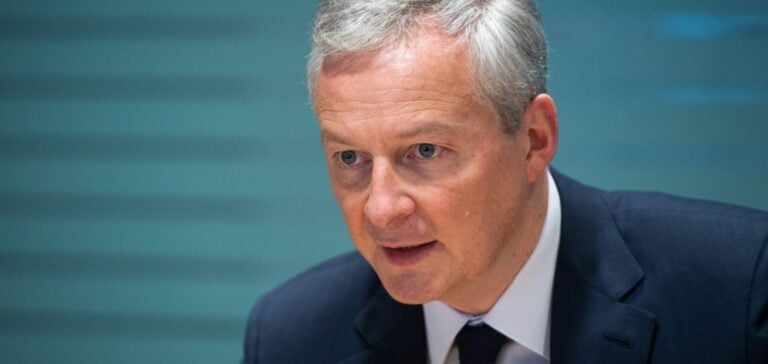The issue of taxing the “super-profits” made by energy companies has become central to the French public debate. Yaël Braun-Pivet, President of the French National Assembly, stressed the need to consider an exceptional contribution from these companies. This proposal echoes the growing concern about the worsening public deficit. However, this idea quickly met with opposition from the French Minister of the Economy, Bruno Le Maire.
Bruno Le Maire’s firm stance
Bruno Le Maire has clearly stated his refusal to increase the tax burden on energy companies beyond a targeted recovery of profits. The Minister insisted that the current economic policy, deemed effective, should not be altered. He also rejected the idea of raising taxes for citizens, considering it a simplistic and inadequate solution. His position aims to preserve an economic line without giving in to the “ease” of tax hikes.
Critical management of public finances
The revelation of a possible increase in the public deficit to 5.6% of GDP, against the 4.9% forecast, has highlighted the challenges of budget management in France. This situation was highlighted by Senator Jean-François Husson’s analysis, underlining the urgent need to address the financial slippage. Minister Le Maire responded to this concern by rejecting austerity and calling for fiscal responsibility. His approach rejects the “laissez-faire” approach to public spending, while avoiding severe austerity measures.
Long-term government objectives
The government’s commitment to bringing the deficit below 3% of GDP by 2027 remains unshaken despite the current circumstances. The Minister of the Economy stressed the importance of meeting financial targets without compromising economic growth. The strategy adopted includes reducing inefficient public spending. This commitment reflects the government’s determination to stabilize public finances, a task deemed crucial to France’s economic future.
Bruno Le Maire reaffirmed the government’s position, which is neither austerity nor complacency, but responsible management of public finances. This philosophy aims to navigate through economically turbulent times while preserving budgetary solidity. Targeted cuts in public spending are presented as a means of returning to a manageable deficit. The Minister’s vision is clear: achieve a balanced budget while supporting French economic growth.





















